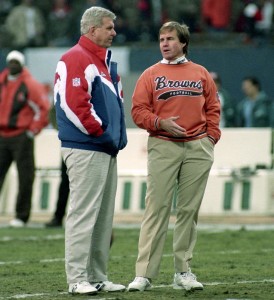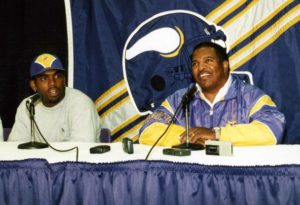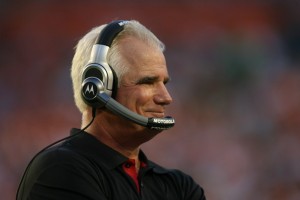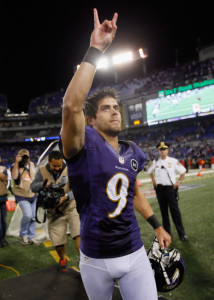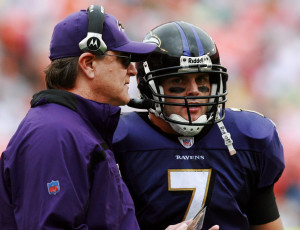What this post will not be about: answering the question of whether Chip Kelly will win a playoff game with the Eagles. But coming up with a more precise title for this post is tough, and well, let me give you the background to this post.
I was having lunch with the fine folks at Sports-Reference yesterday, and the conversation turned to Kelly. I asked them whether they thought Kelly would wind up being a bust in Philly, and they wisely asked for a more precise question. So I asked: did they think Kelly would win a playoff game with Philadelphia before his tenure ended?
We all thought that was a pretty interesting question — I’m not quite sure how Vegas would set the line on it, although I imagine it would be very close to even money. But it made me wonder: at any given point in time, how likely is coach X of Team Y to win a playoff game before his tenure ends? For example, let’s flip back the clock four years ago, to the start of the 2011 season. Let’s say we asked that question of each of the 32 head coaches: what would the results be?
For two of them, the answer would be TBD: Marvin Lewis, of course, has coached the Bengals for a record 12 seasons without winning a playoff game… or getting fired. And, over the last four years, Mike Tomlin hasn’t won a playoff game or been relieved of his duties, either.
Of the other 30 coaches, 12 of them would go on to win at least one playoff game with the team they were coaching at the start of the 2011 season. The other 18 were fired or otherwise had their tenure end without winning a (or, if they won a playoff game pre-2011, “another”) playoff game. Here’s the full table, showing how many playoff wins each 2011 coach had with that team through the 2014 season:
Remember that when looking at the above table, for someone like Rex Ryan, the question isn’t whether he won a playoff game with the Jets, but whether he would win a playoff game beginning with the start of the 2011 season. Ditto for Tomlin, which is why he’s in the TBD column.
But a sample size of one year doesn’t tell us much, so I looked at this question for each season since realignment in 2002. Here are the results.

The 2002 season was the most “successful” of the bunch, with an even half of the league’s 32 coaches at that time going on to win at least one playoff game with their team (starting from 2002). As it turns out, the 2011 season was a slight outlier, but in general, we should expect that only about 13 of the 32 head coaches will win a playoff game from here on out before their tenure ends. On average, from 2002 to 2011, 17.9 coaches did not win a future playoff game, 13.1 did, and 1 (Lewis, naturally) is TBD.
This doesn’t necessarily do much to answer the Kelly question, but hey, that’s what the comments are for.

